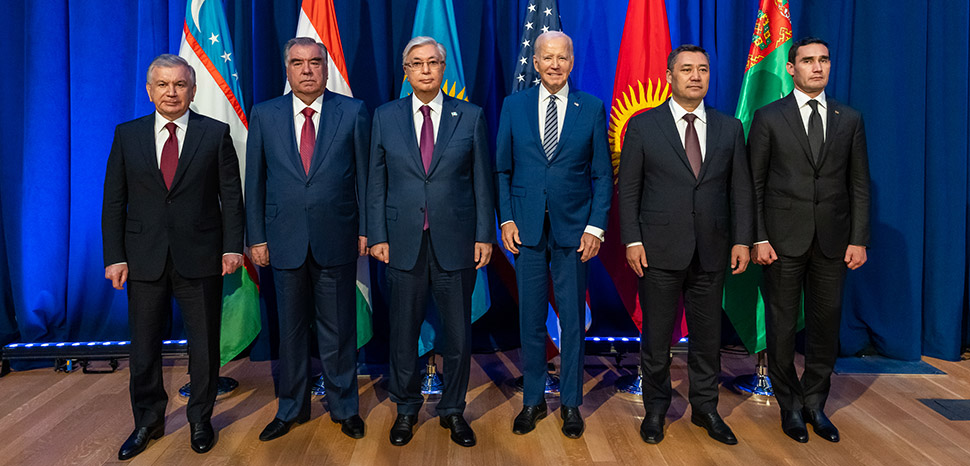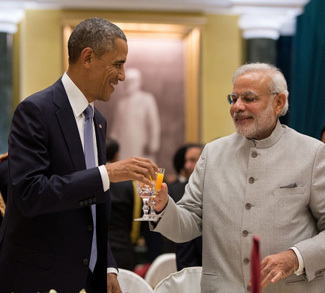The “C5+1” is a diplomatic summit that has been held every year since 2015 at the foreign-ministerial level among the five Central Asian countries and the United States. It is intended both to strengthen the U.S. relationship with the five states in the region and to also enhance relations amongst themselves.
This year it was held at the same time as the opening of the fall session of the United Nations General Assembly in New York. Thus, for the first time, the presidents of all six participating countries contributed directly to the discussions at the summit.
Since its creation, the C5+1 format has evolved into a robust platform for dialogue and co-operation. Its development has been dynamized by the deepening mutual interests between the U.S. and the Central Asian states. This evolution has accelerated since Kassym-Jomart Tokayev became president of Kazakhstan four years ago.
Under Tokayev’s leadership, Kazakhstan has played a significant role in shaping the discussions and outcomes of the annual consultations. The country has become key to fostering regional cooperation and integration, giving it a leadership position in Central Asia. As a result, the U.S. is increasingly recognizing Kazakhstan’s strategic importance.
Especially in the eyes of major powers like the U.S., today Central Asia as a whole has an acknowledged strategic significance. This, along with its intricate geopolitical dynamics, increasingly makes it the backbone of a new network of trade routes, as it was during the old Silk Road era.
The region is facilitating not only commerce but also the exchange of ideas and cultures between the East and the West. Kazakhstan is recognized as the Central Asian country that has the greatest, and immensely valuable, distinctive cultural and economic influences.
Kazakhstan’s pronounced ties with its two large and powerful neighbors, Russia and China, underscore the urgent need for the U.S. to engage more deeply with the region. Recognizing this, the U.S. has sought proactively to strengthen its ties with Central Asia. Within that framework, Kazakhstan is emerging as a pivotal partner with a central role in and fostering mutual understanding.
Economic co-operation is a cornerstone of the edifice of US–Central Asian ties. In this context, the potential and opportunities that Kazakhstan holds are evident. Its resources have caught the attention of American companies, which recognize that the nation is a hub for critical minerals, renewable energy exploration and manufacturing ventures.
Following Tokayev’s introduction of his radical and ongoing reform program, this outside interest has only increased. US businessmen recognize that his reform policies will guide a deeper co-operation with global partners like the United States. Tokayev’s proposal to establish a UN Regional Centre in Almaty likewise puts Kazakhstan in the lead for strengthening Central Asia’s economic prospects.
The U.S. and Kazakhstan have together identified and prioritized cybersecurity, terrorism and violent extremism as key challenges requiring immediate attention. The emphasis on cybersecurity underscores their shared understanding that digital threats have real-world consequences. Their mutual resolve to combat terrorism and violent extremism reflects a common understanding that the regional environment needs to be stable and peaceful.
Adding depth to this security dialogue is Kazakhstan’s forward-looking approach to sustainable development. In this connection, another proposal by Tokayev—i.e., to establish a UN Regional Centre for Sustainable Development Goals in Almaty—is a significant move. Ensuring long-term regional stability and prosperity through sustainable development will reinforce mutually held security goals by the U.S. and Kazakhstan.
Experts in the U.S. foreign-policy community have been advocating that the five Central Asian states should establish an international organization that brings them together, as existed in the 1990s, whose membership consists solely of the five states. Such a development would further deepen relations with the U.S. by providing an institutional point of contact for US diplomacy in the region.
Far from being symbolic, the US initiative to engage with Central Asia represents a recognition of the region’s strategic and cultural significance. In this regard, it is not surprising that Kazakhstan is central to future developments. President Biden’s expression of interest in holding more meetings in Central Asia further reflects this trend. Should he visit the region, Kazakhstan will be a certain destination.
In conclusion, the most recent C5+1 summit reaffirms and re-invigorates the mutual commitment between the U.S. and Central Asia. In this train of events, Kazakhstan and its leader, President Tokayev, have emerged as pivotal figures. The summit testifies to the ever-strengthening ties amongst the participating nations. Its success demonstrates the participants’ desire to construct a shared vision for a stable, prosperous future.
This vision transcends economic and strategic interests. The two foundational principles of such a future are mutual respect and the unwavering recognition of each nation’s sovereignty. As a consistent champion of these principles, President Tokayev has signaled a new era of co-operation between the U.S. and Central Asia, with Kazakhstan playing a leading role.
The views expressed in this article belong to the authors alone and do not necessarily reflect those of Geopoliticalmonitor.com.




